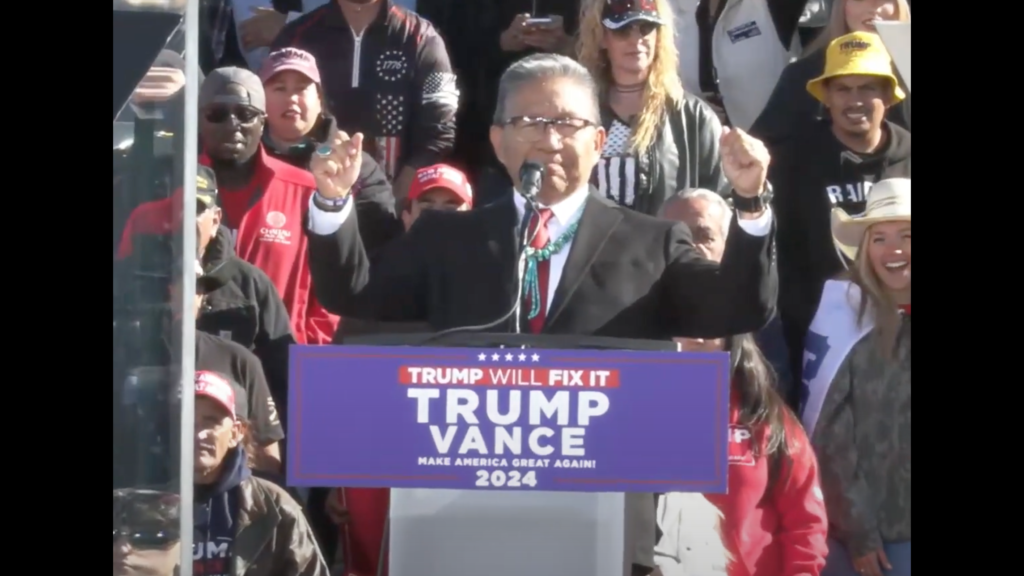Myron Lizer, who served as the 10th vice president of the Navajo Nation from 2019 to 2023 under President Jonathan Nez, recently made headlines with a public endorsement of former President Donald Trump during a rally in Albuquerque, New Mexico. Lizer expressed his gratitude for Trump’s leadership, particularly highlighting the Executive Order that initiated Operation Lady Justice, aimed at addressing the critical issue of missing and murdered Indigenous women. This initiative resonated deeply with Lizer, who associated it with meaningful support for Indigenous communities and a renewed focus on essential resources for vital social issues. His applause for Trump’s actions demonstrates a desire to see continued government support to address the challenges faced by Native American communities.
In his speech, Lizer emphasized the potential for economic development in Indian Country under Trump’s leadership. He pointed to a possibility of reshoring industries to the United States and how such movements could positively impact tribal nations. Lizer’s comments reflect a hope that aligning with Trump can help propel Indigenous communities into modern economic frameworks and opportunities. By invoking Trump’s name, Lizer seeks to rally support from an audience that is eager to engage with a broader American economic resurgence, positioning Indians within the context of the American dream.
Critically, Lizer invoked a stark contrast to the policies of Vice President Kamala Harris, describing her leadership as ineffective and indicative of broader challenges faced by the nation. He used a Native proverb to illustrate the idea that both political sides in the U.S. share fundamental similarities, implying that there needs to be a significant shift in focus to ensure that Indigenous issues are prioritized in the political landscape. This sentiment underscores a collective desire for tangible outcomes rather than mere political gestures, especially as elections loom and the future of policy decisions hangs in balance.
As Lizer continued his address, he called for unity among citizens to strengthen the nation. He framed the upcoming election not just as a moment for individuals to vote, but as a collective responsibility to work towards a stronger national identity. His endorsement of Trump as a future leader—potentially the 47th President—was framed as a pivotal moment for national revitalization. Lizer’s appeal centered on the idea that with Trump’s presidency, there exists an opportunity to not just restore America to greatness but to also elevate Native America within that narrative.
Lizer challenged the rhetoric surrounding the Biden administration’s “Build Back Better” initiative, questioning the feasibility of building from a foundation that has not historically encompassed the realities of Indigenous communities. This critique represents a significant point of contention, suggesting that previous attempts to address Native issues have often lacked authenticity or a genuine understanding of the Native experience. Lizer proposes that true progress can only be achieved when Indian Country is recognized and included in broader national discussions on growth and development.
In conclusion, Myron Lizer’s endorsement of Donald Trump not only reflects his personal convictions but also encapsulates a larger desire among some Indigenous leaders for economic opportunity and visibility within the American landscape. By urging his audience to vote for Trump, Lizer calls for a proactive approach to address historical disparities faced by Native communities while also emphasizing collective national aspirations for a brighter future. As he champions the idea of making both America and Native America great, Lizer opens a dialogue about the role of Indigenous issues in the broader political narrative, seeking meaningful change amidst a complex and often contentious political backdrop.

